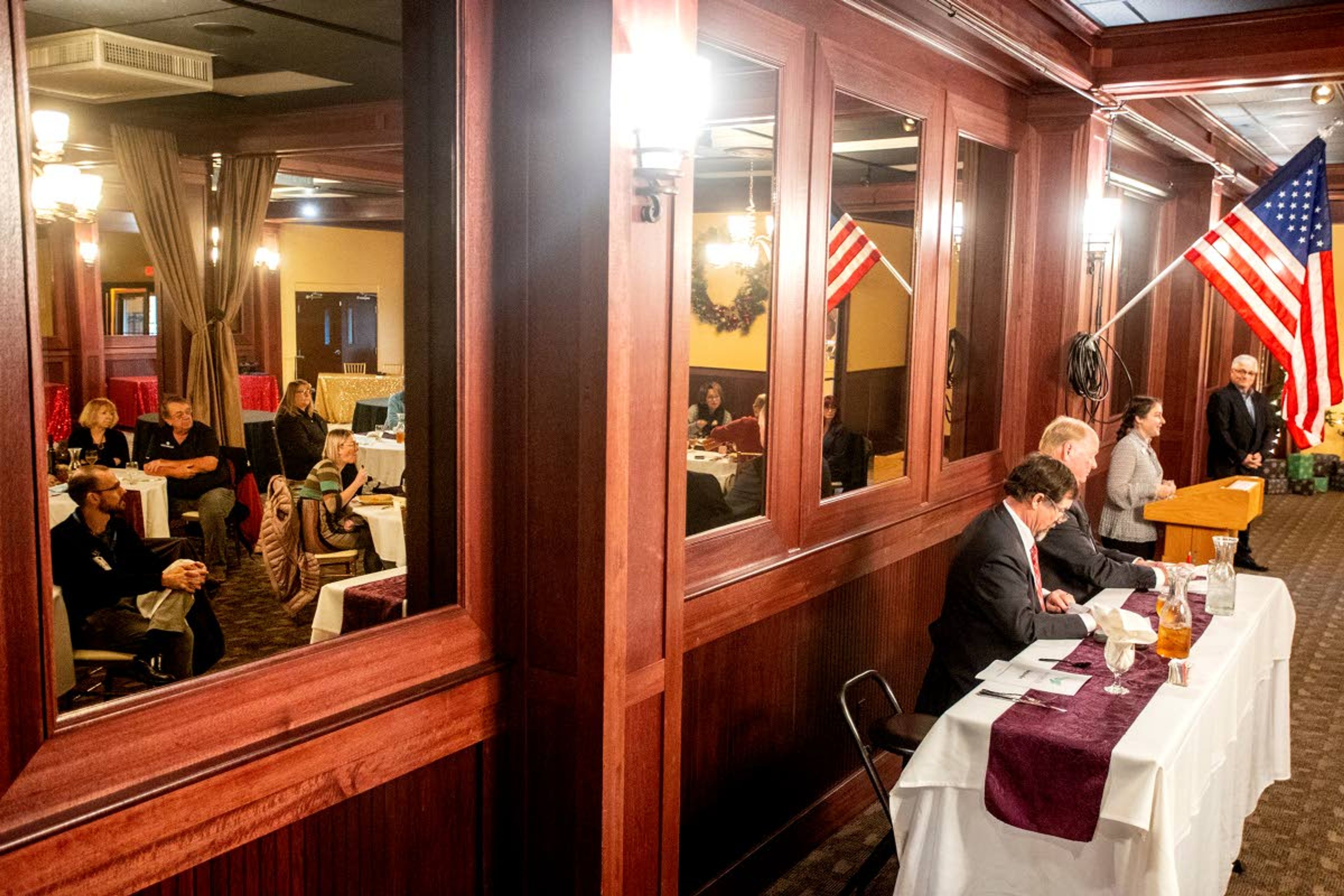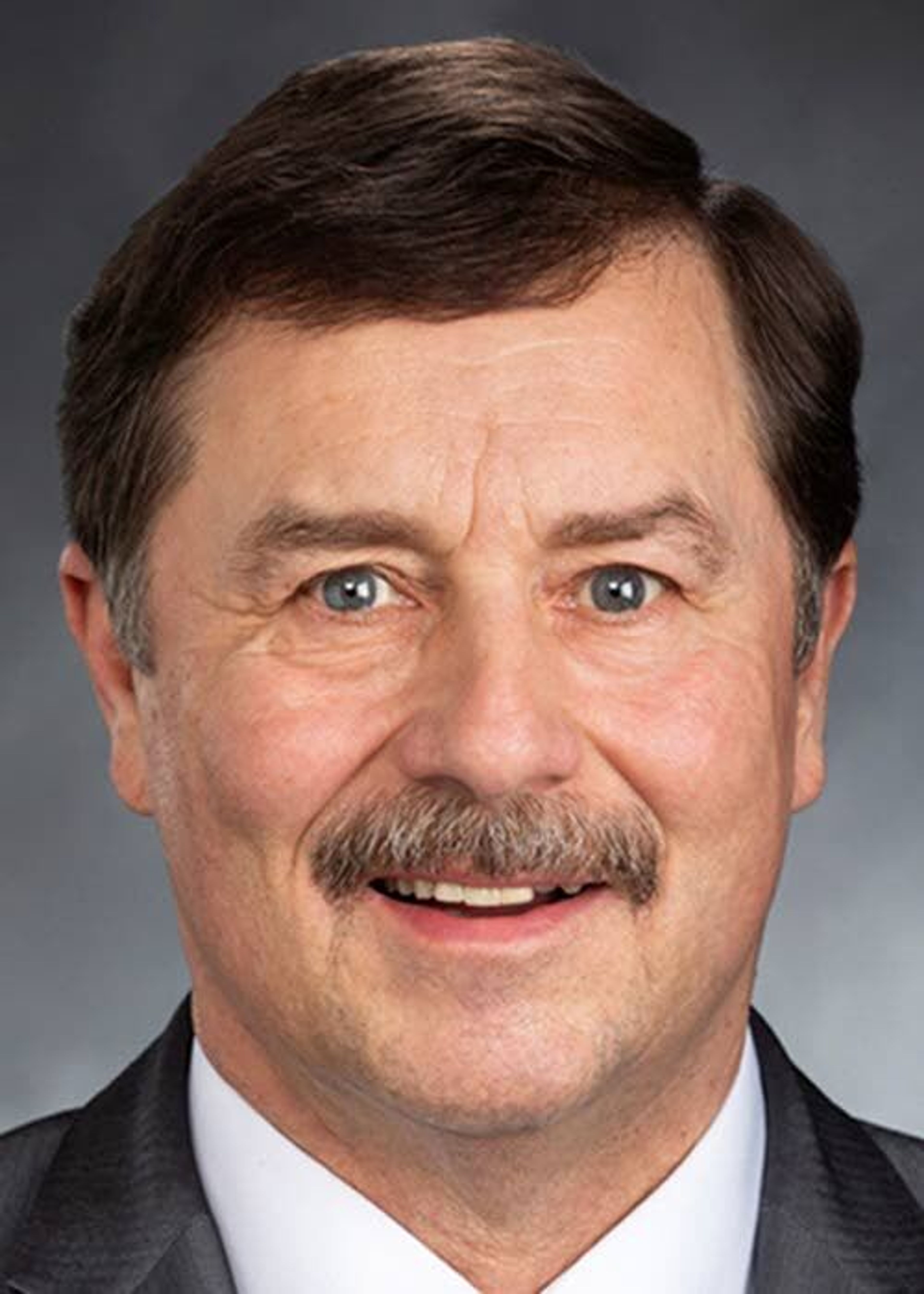Washington lawmakers discuss tax relief, dams
Legislators talk about goals for next session
State lawmakers from the 9th District are gearing up for a 60-day session in Olympia with hopes of repealing the long-term care tax, protecting the dams on the lower Snake River and providing some tax relief to their eastern Washington constituents.
Sen. Mark Schoesler, R-Ritzville, Rep. Joe Schmick, R-Colfax, and Mary Dye, R-Pomeroy, outlined their agendas Tuesday at a legislative send-off luncheon in Clarkston hosted by Schweitzer Engineering Laboratories and the Lewis Clark Valley Chamber of Commerce.
Schoesler, who has represented this area for three decades, said the state is in pretty good shape budget-wise, but there are a “few hogs at the trough.” With billions of dollars in reserves, it’s time to reduce some taxes, he said.
Schmick, who was first elected in 2007, said the state is poised to have an estimated $8.8 billion operating budget surplus over the next four years, another $1.2 billion in unspent federal stimulus funds and $1.2 billion in the state’s rainy day account.
“It’s high time to return some money to the taxpayers,” he said. “We’ve got more than enough.”
Cellphone taxes are one example of the state collecting way more than it needs, Schmick said. Another possibility worth looking into is property tax reductions.
Schmick, the lead Republican on the House Health Care and Wellness Committee, and Rep. Peter Abbarno, R-Centralia, have drafted legislation to repeal the new Long-Term Care Act. If Democrats won’t accept the repeal, Schmick will also have legislation to address some of the structural issues with the plan.
“My bill puts the lipstick on a pig,” and makes it more affordable, he said.
Schoesler has already filed a bill that would explore private-market alternatives to the new program, which is supported by a payroll tax set to go into effect Jan. 1.
Dye, the ranking Republican on the House Environment and Energy Committee, is focusing on her Outdoor Recreation and Climate Adaptation plan that would eliminate the state Discovery Pass, reduce state park fees, provide money for new parks and to address the growing backlog of park maintenance needs, and pay for a variety of healthy forest initiatives and Puget Sound restoration projects.
“If you have to reserve a campsite for your family a year in advance, something’s wrong,” she said.
All three lawmakers spoke about the importance of dams as a power source, rather than relying on wind turbines, solar panels and other forms of “green energy.”
“Any one of those four lower Snake River dams can power Seattle, just to put it in perspective,” Schmick said.
Another challenge in Olympia is the urban-versus-rural mentality. Oftentimes, eastern Washington interests are not at the top of the state’s priority list, said the 9th District lawmakers. They encouraged residents to speak up, attend hearings online and share personal stories of how proposed legislation affects them.
“The biggest export out of our small towns is our kids,” Dye said. “With COVID, we learned people can work from anywhere, and we’re seeing more people choosing smaller towns and bucking the big-city trend, because it’s no dang fun to live there anymore. Bringing some new energy back to rural areas is important, instead of the same five people doing everything.”
Several people at the luncheon talked about the shortage of workers, especially for jobs in the $15- to-$20 an hour range. Finding employees to fill vacant positions and access to affordable housing and childcare are major issues across the entire state, Schoesler said. He’s been looking for someone to permanently work at his farm for the past 18 months.
Childcare centers are so heavily regulated in Washington that “the fastest growing business is eastern Washington is illegal daycares,” Schmick said. That’s one of the reasons companies that provide childcare, such as SEL, are so appealing.
The Washington session begins Jan. 10.
Sandaine can be reached at kerris@lmtribune.com.






